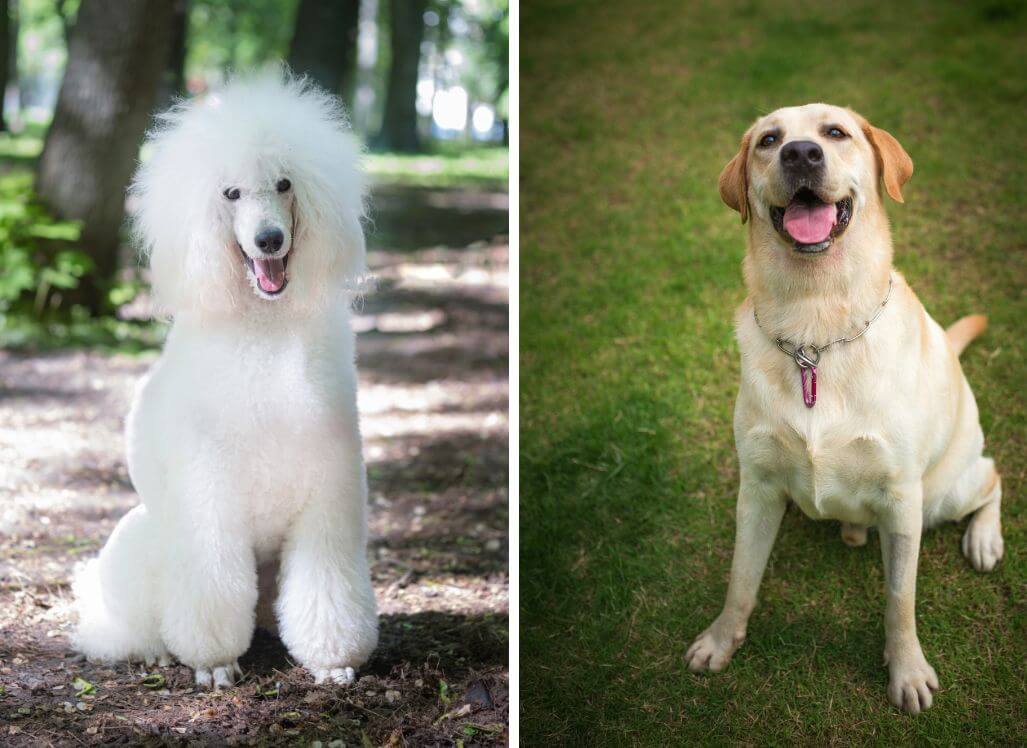If you're one of the many dog lovers who long to have a furry companion by your side but struggle with pesky allergies, you may have heard about hypoallergenic dogs. These breeds are often marketed as the perfect solution for those with allergies, offering all the joys of pet ownership without the allergy symptoms that can come with it.
For allergic dog lovers, the idea of bringing a furry friend into the home could be a daunting one. Constant sneezing, itchy eyes, and runny noses - all the symptoms of allergies can make living with a dog unbearable for those who suffer from allergies. And so you may be wondering whether a hypoallergenic dog could be a possible solution.
But what exactly are hypoallergenic dogs, and do they live up to the hype? In this one-shot blog post, we'll dive into the science behind hypoallergenic breeds and explore whether they could be the answer to your allergy woes.
What is a hypoallergenic dog?
You may be disappointed to hear this, but though opinions vary, most experts agree that there is no such thing as a hypoallergenic dog. “All dogs and cats can cause allergy symptoms. People with dog or cat allergies may tolerate some breeds more than others. People may think those breeds are “hypoallergenic,” but a truly non-allergic dog or cat does not exist.”
However, it is commonly accepted that certain breeds of dogs are less likely to cause allergies in humans. "Hypoallergenic" dogs are unique breeds that produce fewer allergens than non-hypoallergenic dogs. While all dogs produce the proteins that cause allergies, there are specific breeds that produce lower levels of these allergens than other breeds, making them a great option for those with allergies.
Individual Responses to Different Dogs
It may interest you to know that how each individual reacts to a given dog can be different. According to one expert, "Not all dogs produce the same proteins, so some people are allergic to a specific dog, not a specific breed That means that a person could react to one Poodle and live symptom-free with a different Poodle." So it all depends on the dog and the individual person - there may not be a particular "hypoallergenic" dog for a particular person.
What Has Shedding to Do with A Hypoallergenic Dog?
There is a common belief that people are allergic to the hair or fur of dogs, and that hair is less likely to cause allergies than fur. In fact, all dogs shed their hair - it's just that certain breeds shed less than others. If you suffer from allergies to dogs, the amount of hair (or fur) a breed is likely to shed is definitely worth taking into account.
So Are There Any "Hypoallergenic" Dogs?
Although no dog can be completely hypoallergenic, there are certain breeds that are less likely to cause allergies and are therefore more suitable for people with allergies. Poodles, Bichon Frise, and Schnauzers are popular and widely recognized breeds when it comes to hypoallergenic dogs. They have curly hair that does not shed as much as other breeds, reducing the release of pet dander. Adding to the list, Portuguese Water Dogs, Maltese, and Yorkshire Terriers have also proven to be fantastic hypoallergenic dog breeds that are worth considering.
To find a breed that may work for you, check out this article "Best and Worst Dog Breeds for People With Allergies".
Conclusion:
In a recent post, we discussed what you could do to manage your allergies, including exploring dog breeds that may be suitable for those with allergies. While no dog breed is entirely hypoallergenic, selecting a hypoallergenic breed, coupled with good grooming practices, can make pet ownership much more manageable.
Keep in mind that it's important to find the right breed for your individual needs, and to also take into consideration other factors such as exercise and grooming requirements. Don't let allergies keep you from enjoying the benefits of owning a dog - do your research and take steps toward finding a furry companion that works for you.
You may also like:













